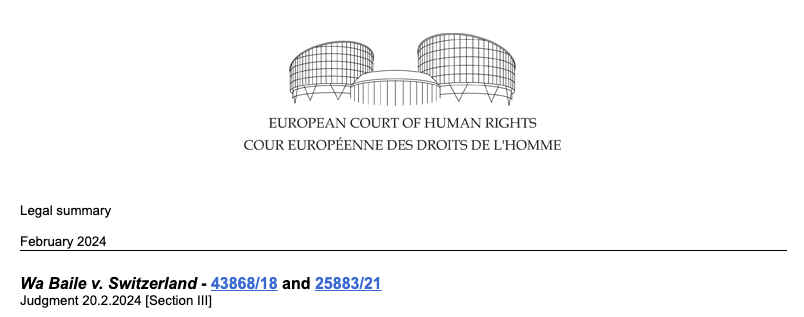Mohamed Wa Baile claims to have been subjected to ethnic profiling in 2015, when he was stopped by police officers in a train station in Zurich and told to identify himself. Wa Baile, a Swiss citizen and a visible minority, states that he was not given a reason for the check. He was then subjected to a search and fined 100 Swiss francs for not identifying himself.
The police report notes Wa Baile’s dark skin colour and indicates that suspicion was aroused because he allegedly looked away from police officers. The Swiss courts rejected Wa Baile’s claim, referring to factors such as the police report and stating that there was an increased expectation of delinquency in the busy train situation. In 2018, Wa Baile lodged an application for the matter to be heard by European Court of Human Rights (ECtHR).
The court found, unanimously, that Wa Baile had been subjected three violations of the European Convention on Human Rights:
- A procedural violation of Article 14 (prohibition of discrimination), in conjunction with Article 8 (right to respect for private life). The decision noted that Swiss courts had failed to examine whether discrimination on the basis of skin color might have played a part in the identity check to which the applicant had been subjected.
- A violation of Article 14 in conjunction with Article 8 as to the allegation of the discriminatory nature of the identity check to which the applicant had been subjected. The court concluded that there was, in the circumstances of the case, a presumption, which the Government had failed to rebut, that the applicant had been subjected to discriminatory treatment on the basis of skin color.
- A violation of Article 13 (right to an effective remedy) in connection with the applicant’s complaint under Article 14 read in conjunction with Article 8. The Court found that no effective remedy had been available to the applicant in the domestic courts in respect of his complaint.


